"Many hands make light work"
By putting the right things in the right place, relationships develop between them and they support each other.
This icon represents a group of people from a bird’s-eye view, holding hands in a circle together. The space in the centre could represent “the whole being greater than the sum of the parts”. The proverb “many hands make light work” suggests that when we work together the job becomes easier.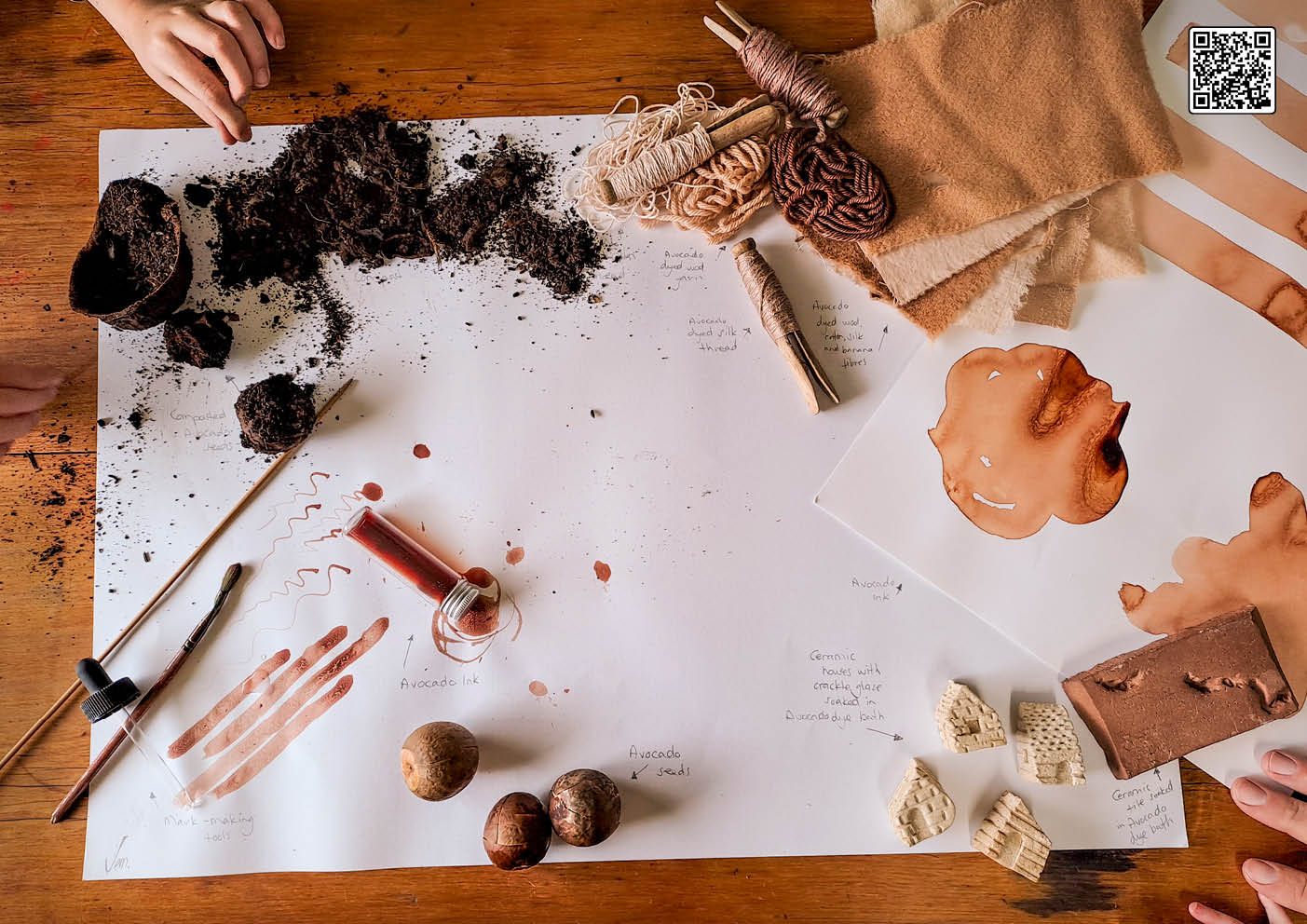
Art with heart
Jemma re-purposes waste materials for art projects with her children, integrating their family life with art, environmental responsibility, and repurposing waste. “I find used things like avocado seeds, old blankets and coffee grounds so beautiful, and an alternative to commercial art materials. These objects and items have a history of use and hold memory. We find joy in the sometimes ritualistic process of giving them another life”.
Photo by Jemma White, Jagera, Giabal and Western Wakka Wakka Country / Toowoomba, Australia.
Submit your examples on Instagram #integrateratherthansegregate
Nominate and submit your favourites for the next Permaculture Calendar with #permaculturecalendar
Find out more
![]()
Integrate rather than segregate examples from previous Permaculture Calendars
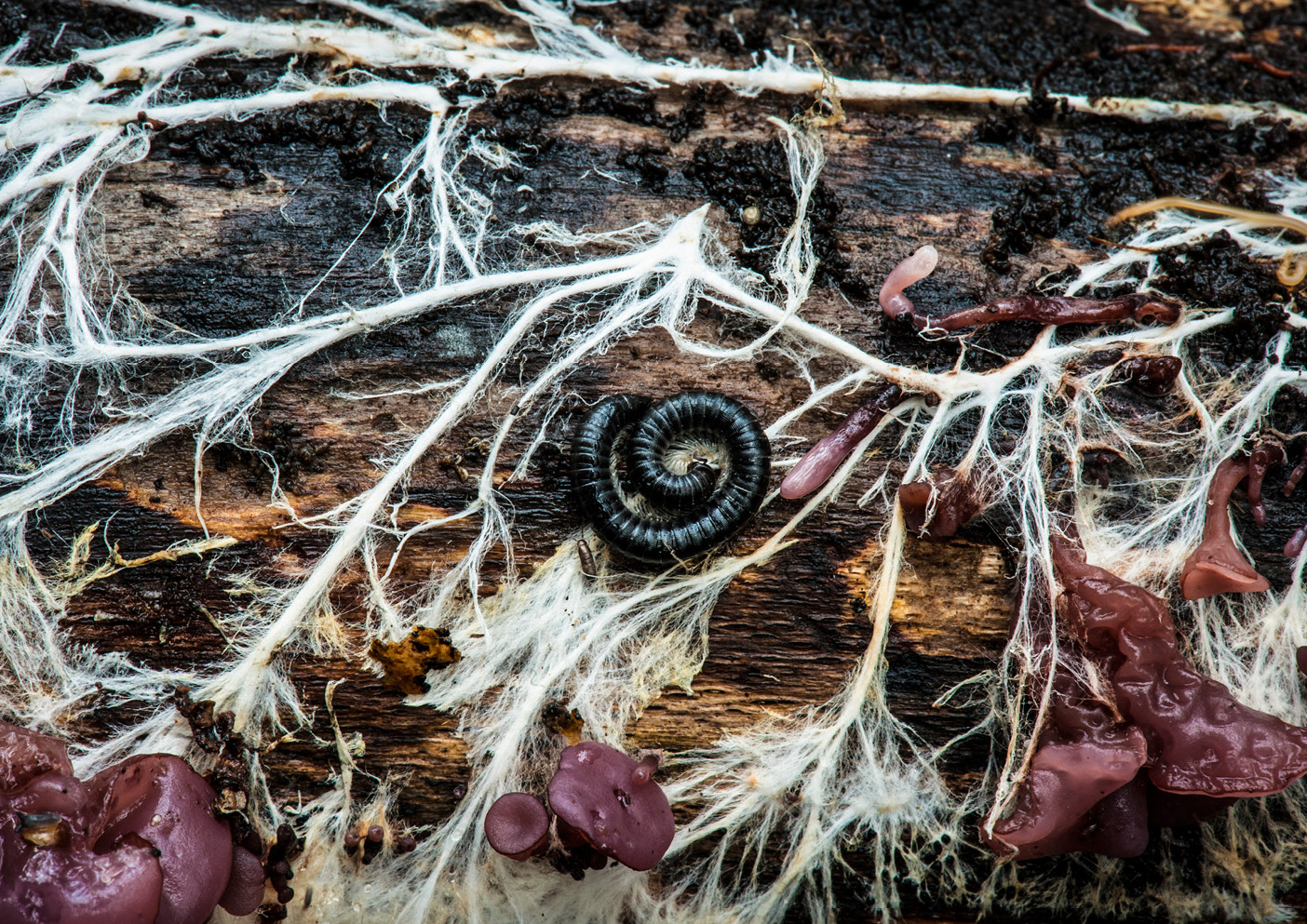
Wood wide web
A millipede among the mycelium and sporebodies of the beech jellydisc. Processes of breakdown and reassimilation into life are ongoing. Fungi collaborate with woody plants to access resources and connect the many parts of a living soil. Aspects of human organisation mirror that of mycelium, in the structures of some of our cities, our transport networks, and our social groups. Mycelial networks can remind us to value distributed capacity and connectivity between all things.
Photo by Allison Pouliot, from her book The Allure of Fungi, CSIRO Publishing 2021.
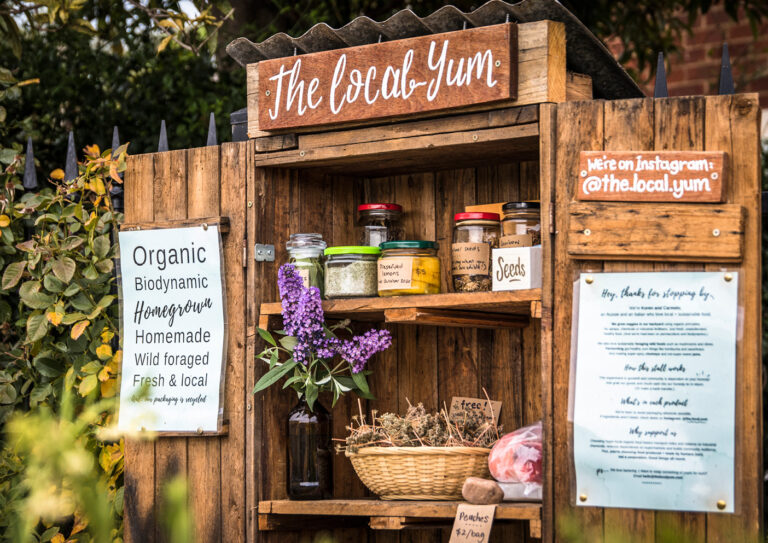
Neighbourhood pollination
Koren and Carmelo’s roadside honesty stall offers a welcome interface between household garden and Adelaide neighbourhood. This is one small node of connectivity that helps integrate our food system into urban areas, rather than segregating production to the country and sales to city supermarkets. This neighbourhood place of connection offers fertile ground for new relationships and the exchange of seeds, recipes and knowledge.
Photo taken by Koren Helbig of The Local Yum honesty stall in Adelaide, South Australia
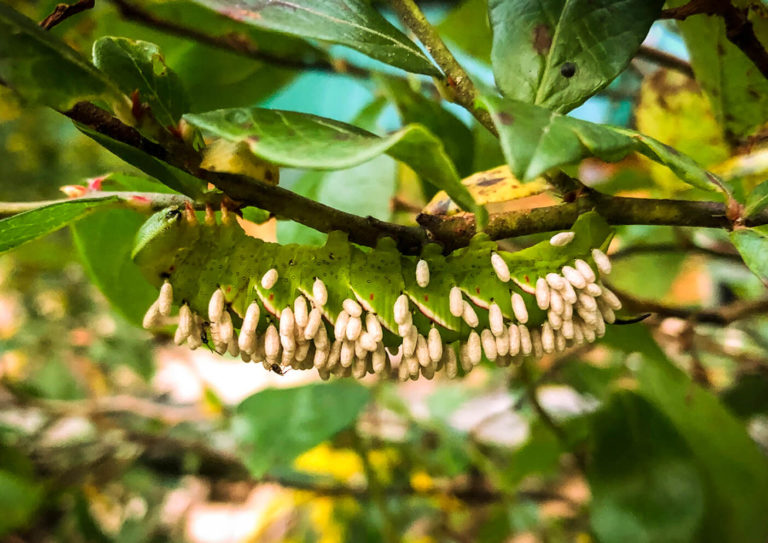
The eater is eaten
Look closely, this Tomato Hornworm that was after Eileen’s blueberries is itself being targeted for food. Braconid wasps laid eggs into the caterpillar, the larvae ate their way out, and are completing their pupation in silk cocoons. The lifecycle of the parasitic wasp has interrupted that of the Hornworm, controlling this garden pest without human intervention. Had Eileen squashed the Hornworms the Braconid wasp might not be around next year to keep pests at bay.
Photo taken by Eileen Gombosi in Ripton, Vermont, USA
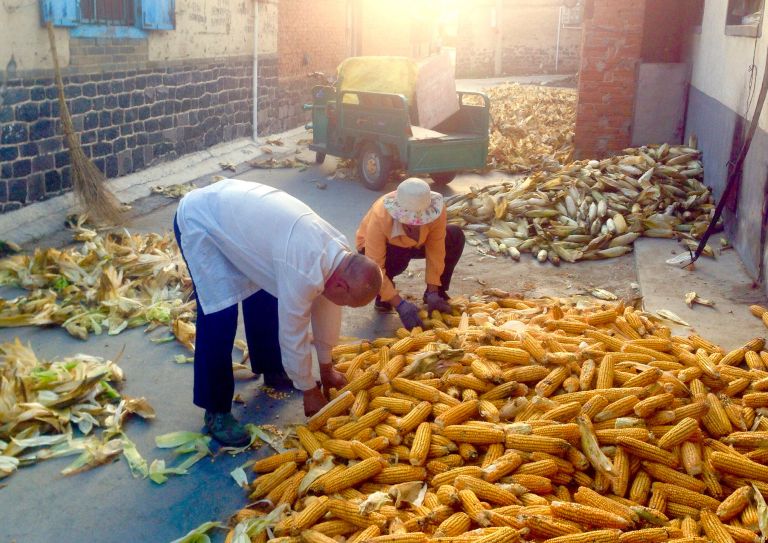
A win-win for farmers and neighbours
This crop has been harvested from a field on the outskirts of the ancient Chinese village of Xiheyang. The paved laneway near the farmer’s home is being used to dry the corn. The work of dehusking is done by local residents in return for the husks. These are highly valued as a baking/steaming paper, as they bring natural sweetness and fragrance to the food. They can be dried in the sun after steaming, reused many times, and are also used for making bags, mats and in crafts. .
Photo by Jeremy Yau in Xiheyang Village, China as a part of Rural China Tours with Shaoying Wang
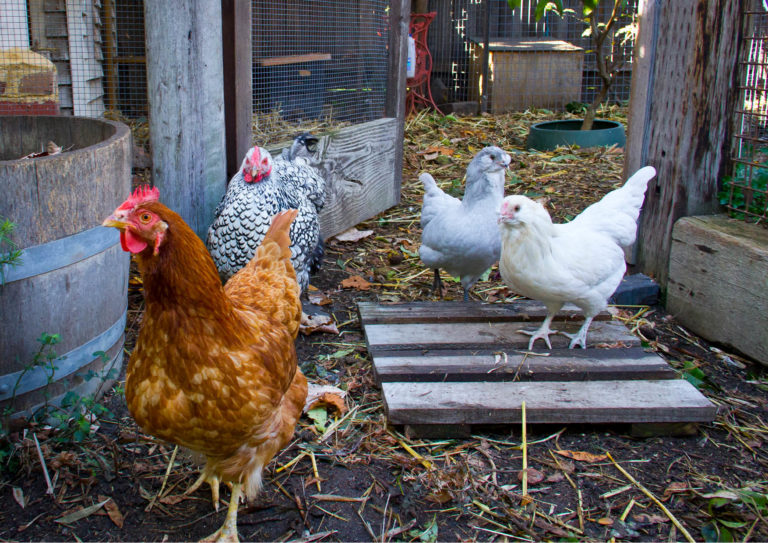
Following instincts
A mother hen raising her young is the natural and low maintenance way to increase a backyard flock, with a suitable breed like this Pekin Bantam. A broody hen creates the perfect environment for hatching her young, providing the right heat and humidity and turning the fertile eggs regularly. She’ll teach them what they need to know to be a chicken, protect them and keep them warm, and confer immunity while giving them the attention they need.
Photo by Jessamy Miller editor of Grass Roots & Australasian Poultry magazine
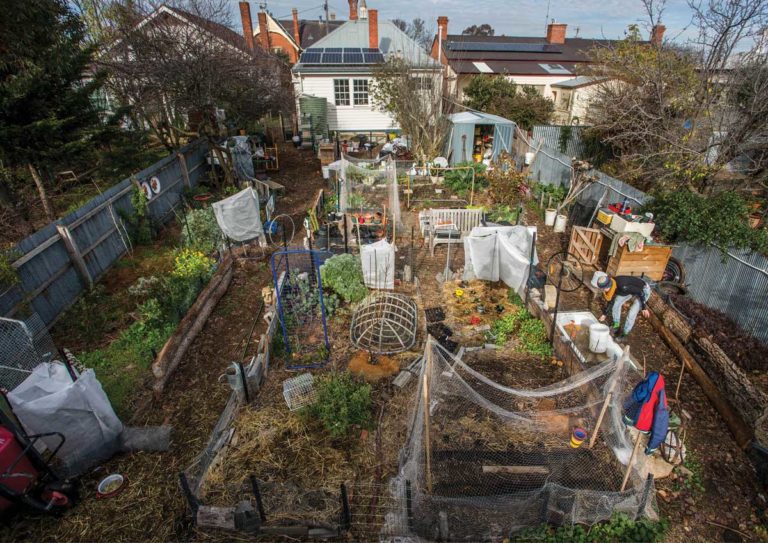
Backyard hunter harvest
Katherine and Sam made a tree change and moved to a country town from the city just 18 months earlier. They chose this property because of it’s solar aspect and proximity to town, which is located directly opposite a primary school. School pick-up time provides an opportunity to sell excess produce, honey and eggs at the Hunter Harvest pop-up shop in the front yard. The collection of geese, dogs, cats, chickens, rabbits and fish help cycle nutrients back into the garden.
Photo by Oliver Holmgren at Hunter Harvest in Castlemaine, Victoria, Australia.
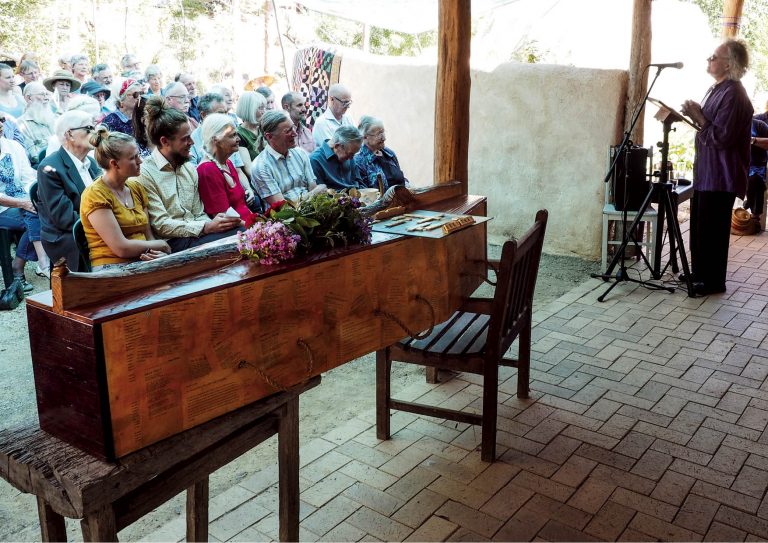
Keeping our elders with us
The funeral service for Venie Holmgren at Poets Corner, Melliodora is where she spent the last four years of her long life in the house her son David built for her. Construction of the casket at a neighbours workshop helped her son and grandson heal through the process. The poetry collage came from her published works and those of her poet colleagues. The story of the casket, funeral and Venie’s long life reveal the layers of integration that bind us to those who have passed on.
Photo taken at Melliodora, Australia by Bruce Hedge
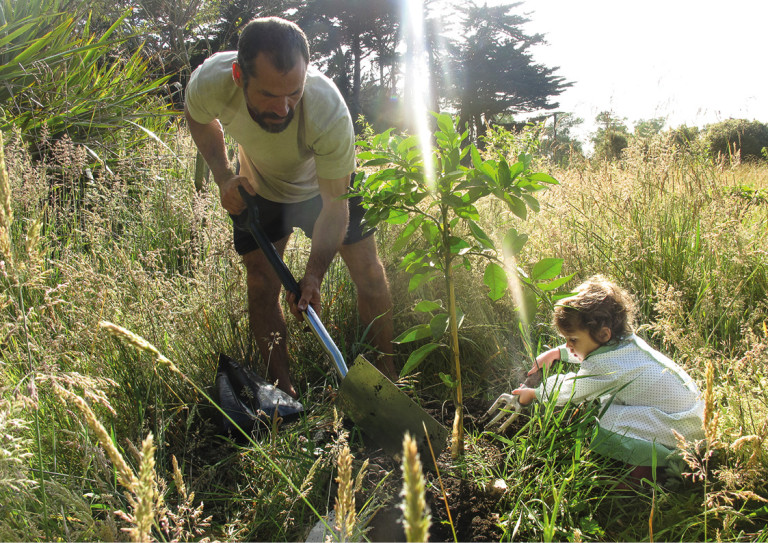
Planting for the future
Young Verdi helps her dad plant a Campbell Orange tree at their recently purchased property, in recognition of the summer solstice, using her own set of small tools. Her parents try to involve her in as many chores and projects as possible: from feeding the animals, working in the garden and planting trees to shelling beans. It allows the business of developing and maintaining the property to continue, at a slower pace perhaps, while teaching important life skills at the same time.
Photo taken by Dani Lebo
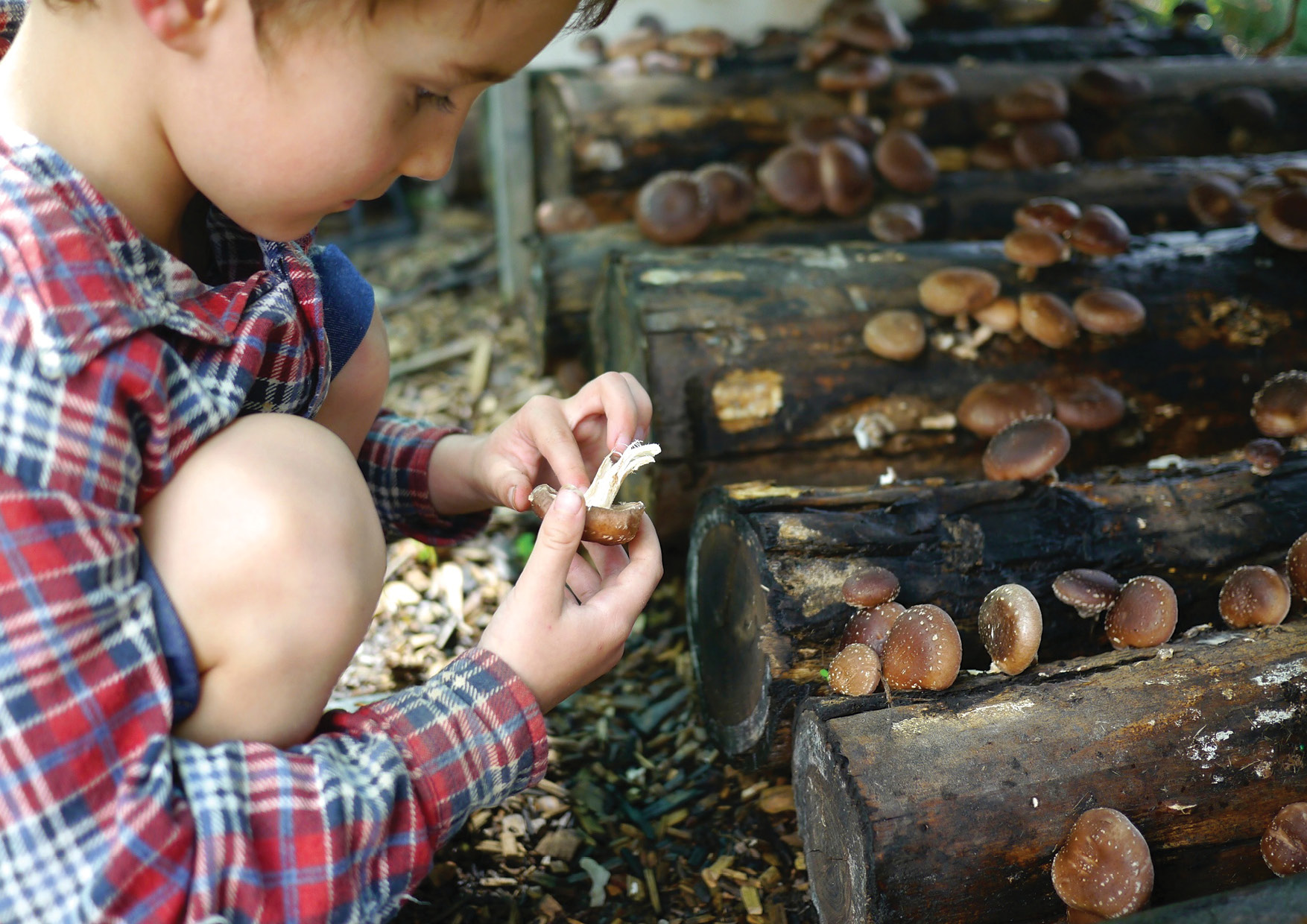
No fuss shiitake
Ashar inspects a harvest from shiitake logs in the shade house, where perennial seedlings and cuttings are propagated. Underneath the benches is a great spot for shiitake logs. It’s shady, has great airflow, gets humidified daily via the misting of the plants and is kept moist by the excess water falling from the seedling trays above. Traditionally, oak, willow and poplar logs are used, but at Milkwood Farm eucalypts are what is available, so they work with what they’ve got.
Photo contributed by Kirsten Bradley
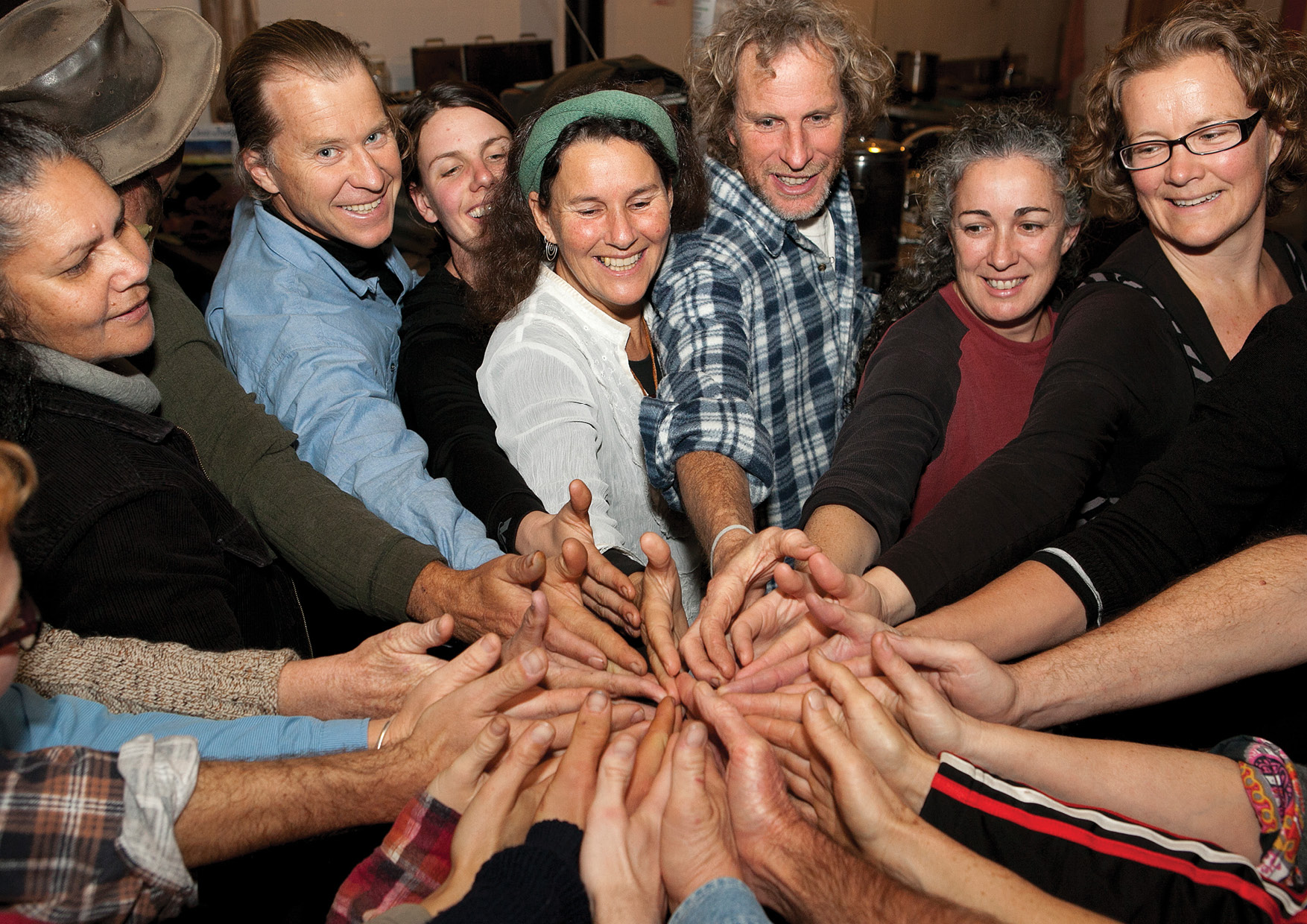
Building strength and trust within groups
The importance of collaborative processes is often ignored because of the urgency of direct action. Groups can work more successfully together when participants are engaged and feel connected, bringing better outcomes in the long term. Robin Clayfield (centre) initiates a group handshake at the end of her dynamic decision making workshop that supports everyone in the group to meet, discuss and make decisions in a more effective, inclusive and empowering way.
Photo contributed by Robyn Rosenfeldt. See People and Permaculture and Getting Our Act Together for more about working with groups.
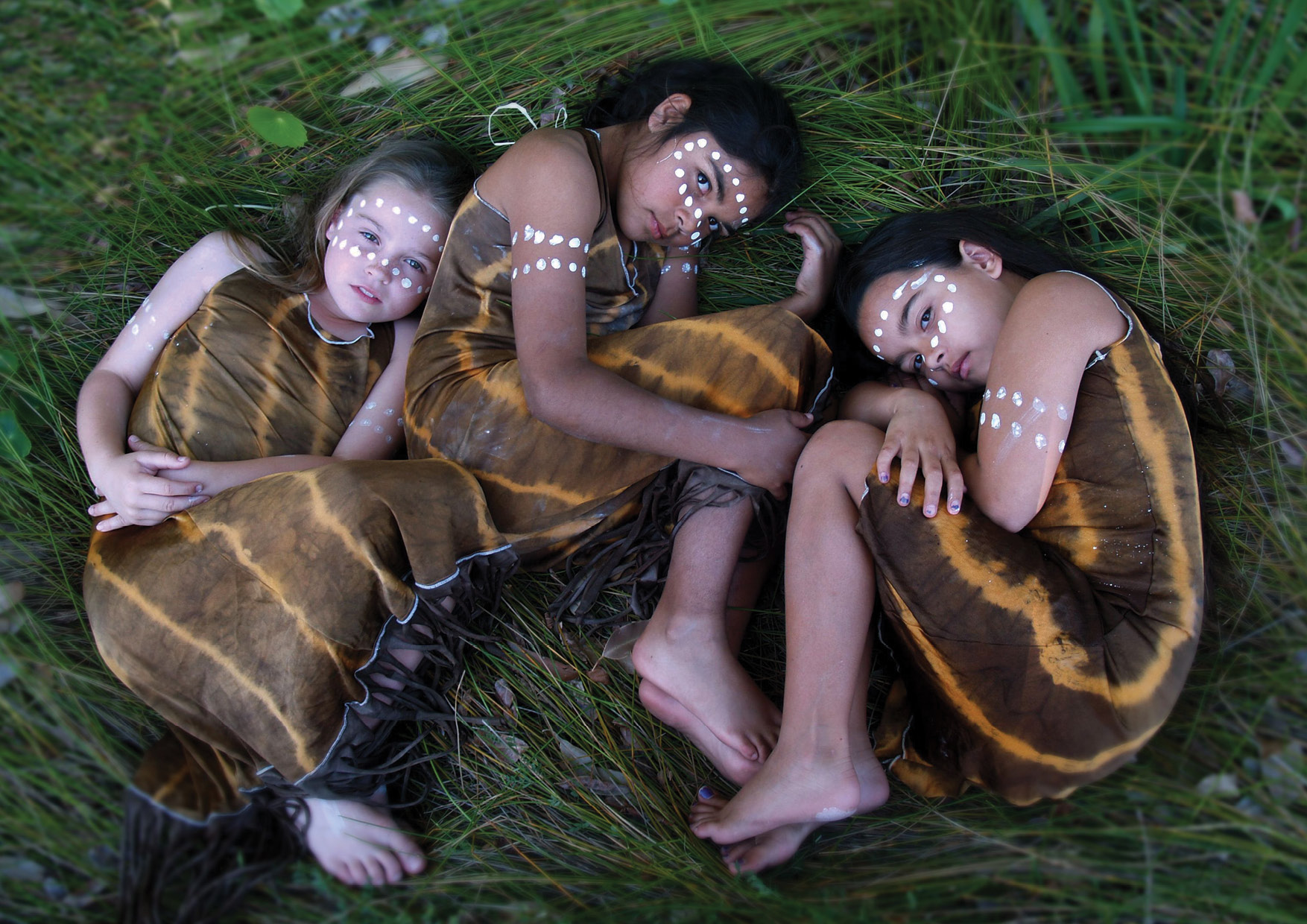
Seeds
In indigenous cultures there is no separation between earth, people and culture. These girls begin their dance as dormant seeds ready to sprout and grow, as the girls themselves will flourish and become women through living a connected and interactive life with their country and people.
Text by Michele Margolis, photo of members of the Jannawi Dance Theatre by Michelle Blakeney
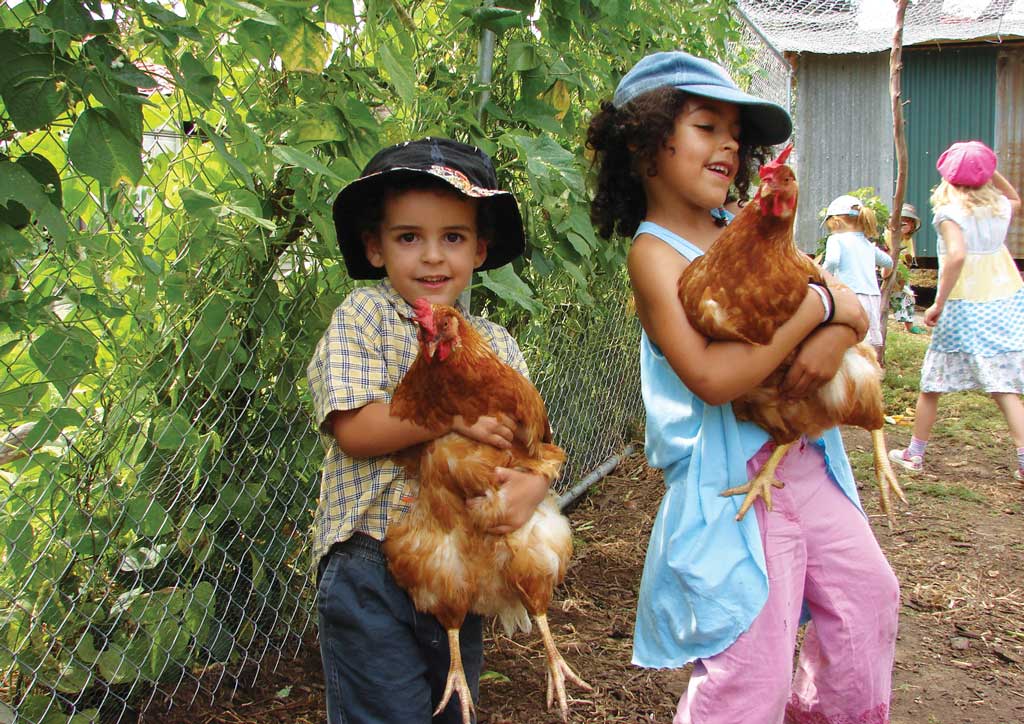
The chicken solution
A waste audit at Wilkins Public School measured compostable waste at 25 kg per day. The school community and TAFE Outreach responded by building a large chook run in the garden. The much loved hens now live a well fed existence, recycling garden waste and food scraps into fertilizer and eggs. Wilkins Green is for school, pre-school and TAFE use. Here Milele and Jaali embrace their role as caretakers.
Photo taken at Wilkins Green, Australia and contributed by Leonie McNamara
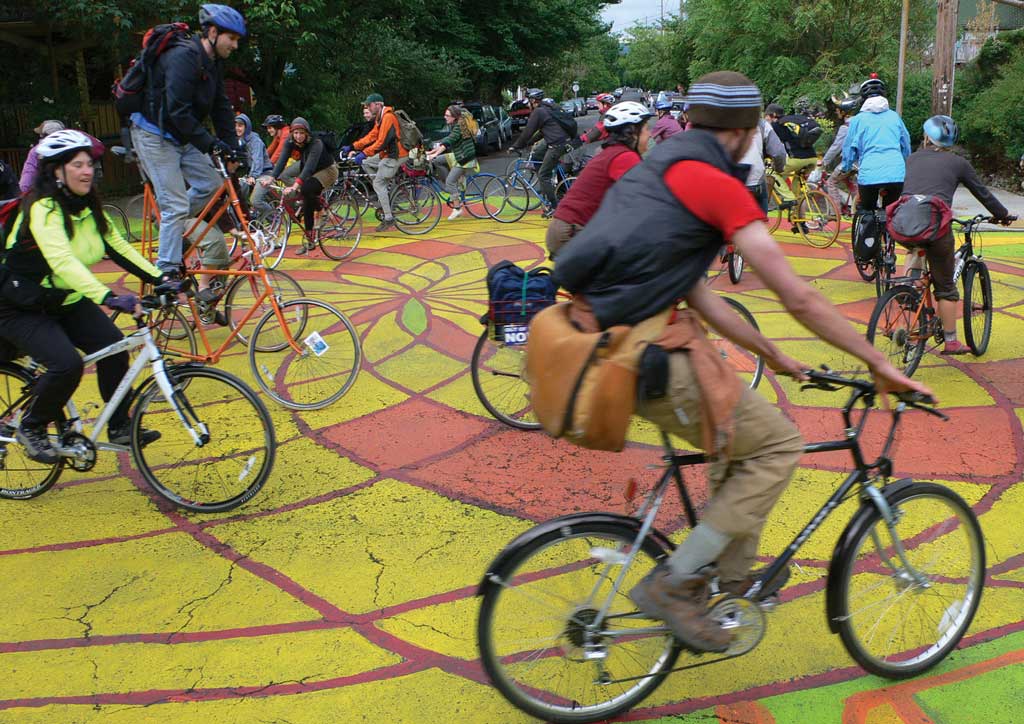
Making spaces into places
City planning has tended to cultivate disconnection between people, and from the natural world. City Repair reclaims urban spaces to create community-oriented places. Localisation of culture, economy, decision-making, food supply and material needs is a necessary foundation for sustainability. “We are all villagers at heart.” [Brian Friel]
Celebratory bike ride photo taken at the Village Building Convergence, Portland, Oregon and contributed by Joel Catchlove
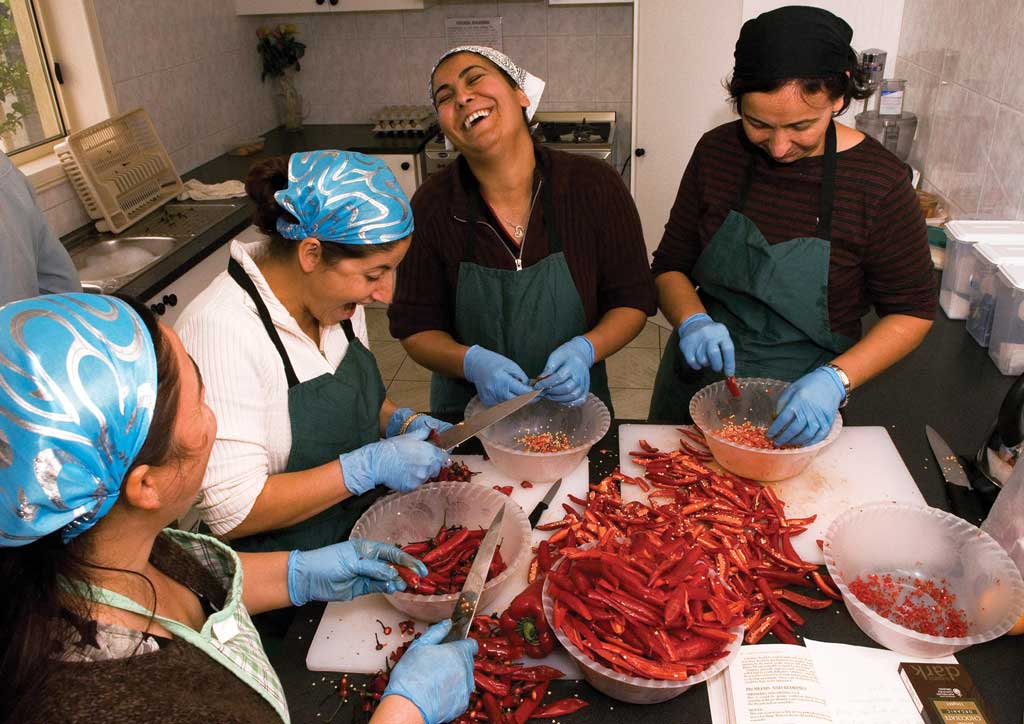
Cook together, learn together, laugh together
The Seven Stars is a food based social enterprise at CERES in Melbourne operated by Turkish and Kurdish women. Making use of seasonal peaks in locally grown organic produce, the Seven Stars create a delicious range of products and catering that showcase the women’s food traditions. The most peaceful communities are those that embrace human diversity, and that are connected by food grown, cooked and shared with love.
Text contributed by Michele Margolis, photo by Lindi Huntsman.
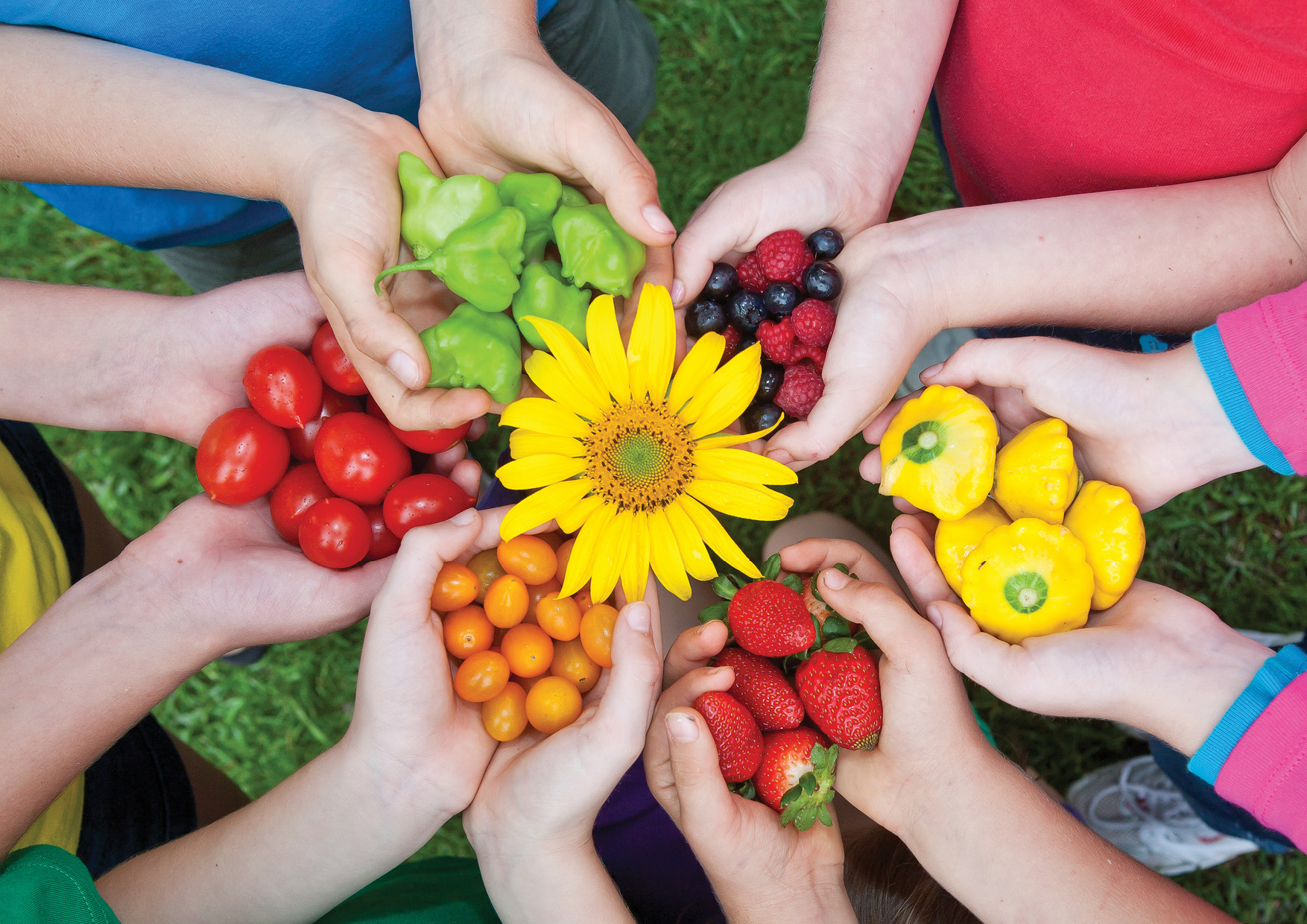
Eating the school gardens
Students are continuously sharing the food from their school garden which they designed and built with the school community. We have a harvest celebration, a bringing together of all classes to harvest the fresh organic produce, cook and share a meal together, a meal full of health, colour, flavour and students’ pride. Everything we do within the Edible School Gardens program is integrated – it is all in a cycle, nothing wasted, all systems supporting each other.
Photo contributed by Di Harris and text by Leonie Shanahan



